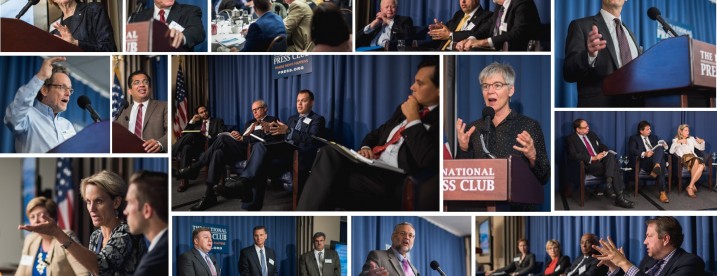
On February 1st through 2nd, I and other youth representatives from around the world met at the UN’s ECOSOC Youth Forum to discuss how we can actively influence the implementation of the recently adopted Sustainable Development Goals (SDGs). A highlight of the event was a speech by Mr. Ahmad Alhendawi, the UN Secretary-General’s Special Envoy on Youth, who argued for his “Ten Myths about Youth,” in which he asserted that youth are not the future, seeing as we comprise so much of the world today and are directly and immediately affected by any decisions that take place. Youth are as much the present as any other group in society—participating youth repeatedly expressed their concerns about the current lack of employment opportunities (in advanced and developing economies alike). High levels of youth unemployment are correlated with major losses in human capital development, income and employment stability, and aggregate economic gains.

For over a decade now, various global initiatives have promoted the design and implementation of international standards for governments and companies in the extractive sector to publish detailed information about their output and revenues. In 2002, after major corruption scandals emerged in Angola, Publish What You Pay (PWYP; a global coalition of civil society organizations) demanded oil, gas and mining companies to publish what they paid governments.
By Tom Cardamone, February 1, 2016
In adopting the Sustainable Development Goals this past September, UN member states realized two extraordinary achievements. First, the document itself—with 17 goals, 169 targets and 200+ (yet to be finalized) indicators—is a testament to global ambition, a 15-year roadmap toward what is hoped will be unprecedented progress in poverty alleviation. Second, the global community agreed to “substantially reduce illicit financial flows,” which reached $1.1 trillion two years earlier according to a recent GFI study.
By Dev Kar, January 22, 2016
Several recent studies have indicated that capital flight (defined as outflows of licit and illicit capital from developing countries) has serious consequences for economic performance and well-being. For example, a 2012 IMF study based on a panel regression of 103 developing countries over 2001-07, found that country-specific factors such as institutional quality and domestic credit markets have little impact on a country’s ability to translate capital inflows into domestic investment.
By Joseph Spanjers, December 15, 2015
This reflects a refinement in how we calculated our estimates for 37 countries, including major emerging economies like Mexico, South Africa, and Turkey. These countries join 19 others for which we were able to use more detailed data to capture how much money flowed out illicitly. As a result, our estimate for 2013 was a total outflow of a staggering US$1.1 trillion—and the world actually crossed this trillion mark in 2011.
By Christine Clough, PMP, October 26, 2015
When the States Parties to the UN Convention against Corruption (UNCAC) and official observers gather in St Petersburg next week for the 6th Conference of States Parties (COSP), the UNCAC Coalition will be advocating for enhanced language...
By Tom Cardamone, October 6, 2015

A Quarterly Newsletter on the Work of Global Financial Integrity from June to September 2015
Global Financial Integrity is pleased to present
GFI Engages, a quarterly newsletter created to highlight events at GFI and in the world of illicit financial flows. We look forward to keeping you updated on our research, advocacy, high level engagement, and media presence. The following items represent just a fraction of what GFI has been up to since March, so make sure to check our
website for frequent updates.
Global Financial Integrity Conference: Illicit Financial Flows: The Most Damaging Economic Problem Facing the Developing World
Based on the culmination of work GFI has done with the support of the Ford Foundation including a book by GFI, the conference included discussions and keynote remarks from experts on the nature of IFFs, country-level perspectives, and how and why curtailing these IFFs should be a priority for the global community.
By Christine Clough, PMP, September 1, 2015

Flight Capital and Illicit Financial Flows to and from Myanmar: 1960-2013
Please join Global Financial Integrity (GFI) for a panel discussion on Thursday, September 10 at the National Press Club in Washington, DC. Based on a forthcoming report by GFI, the panel will discuss the dynamics of illicit financial flows (IFFs) and economic opacity in Myanmar since 1960, and the economic ramifications these trends have had and continue to have on the country’s development.
The panel will include:
Dev Kar
Chief Economist
Global Financial Integrity
Vikram Nehru
Senior Associate, Asia Program
Bakrie Chair in Southeast Asia Studies
Carnegie Endowment for International Peace
Aaretti Siitonen
First Secretary
Embassy of Finland
And will be moderated by:
Tom Cardamone
Managing Director
Global Financial Integrity




